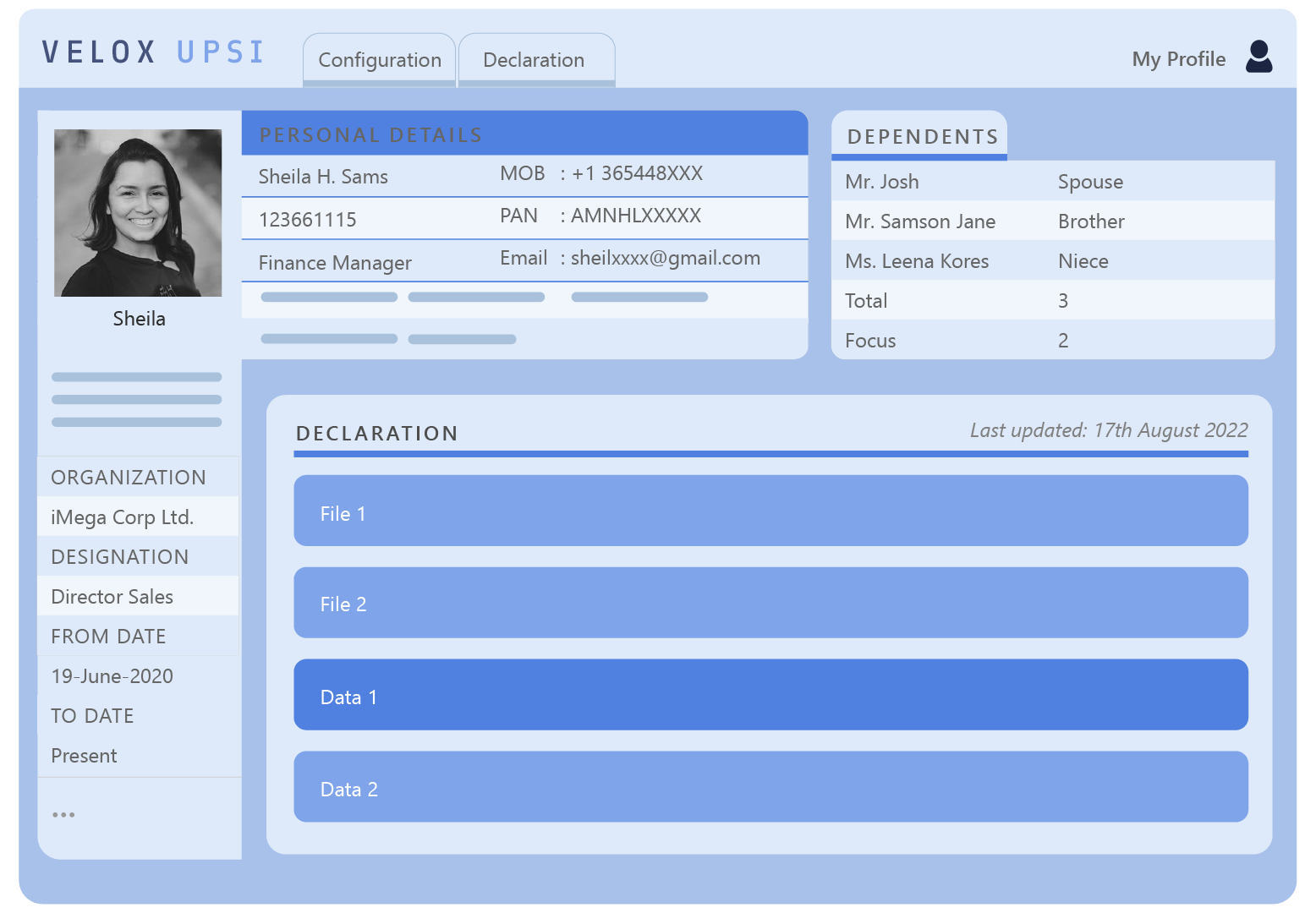Velox UPSI
SEBI UPSI, SDD & Insider Trading Software
Velox UPSI is a ready-to-use centralised platform for UPSI declaration and submission, integrated with external systems to secure insider information as per SEBI guidelines.

SEBI’s (Prohibition of Insider Trading) Regulations, 2015, prohibit insiders from communicating unpublished price sensitive information (UPSI).
Velox UPSI is a secured, on-premise platform to record and manage employee UPSI declarations to stay compliant as per SEBI UPSI guidelines
Velox UPSI is supported by a highly secure, encrypted & structured digital database backend to protect against unauthorised changes and access

Product Features of SEBI SDD Software
.svg)
Ready to use and self service platform
.svg)
Centralised platform for UPSI declaration & submission
.svg)

Integration with external systems & mail server for auto capturing of UPSI
.svg)
Information fed into the CRM system can be cross-checked with actual transaction behaviour
.svg)
Implemented on client infrastructure with SSL certificates
.svg)
Auto enabled with SDD - Structured Digital Database
.svg)
Single Sign-on/User Credential based access to the platform with 2-Factor Authentication.

Enables automated seamless system integrations across varied platforms, networks, systems, APIs etc.
.svg)
Extracts & transforms data from complex data sources.

Performs automated reconciliations, bank transfers & cash flow activities

Automated reporting to stakeholders and reverse integrations with systems
Industries
Suggested Case Study
.svg)
See how Infomatics Trillium® enables accurate visibility of Cash Position and Control Liquidity across an Organisation
Suggested Case Study
.svg)
See how Infomatics Trillium® enables accurate visibility of Cash Position and Control Liquidity across an Organisation
Suggested Case Study
.svg)
See how Infomatics Trillium® enables accurate visibility of Cash Position and Control Liquidity across an Organisation
Suggested Case Study
.svg)
See how Infomatics Trillium® enables accurate visibility of Cash Position and Control Liquidity across an Organisation
Suggested Case Study
.svg)

